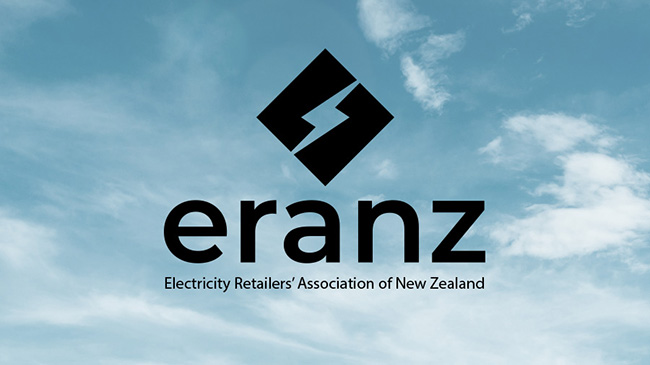Tēnā rawa atu koe, Nigel. Ko Simon Watt toku ingoa.
Tēnā kōrua to Ministers Bishop and Brown – thank you for taking part in this event – we really value the opportunity to hear from you in person on your policy direction and priorities.
Ngā mihi nui ki a koutou katoa – to everyone here today, we appreciate you making the time to attend another joint ERANZ and ENA function.
We hold this event together because, while our businesses are different, we’re interdependent and share common objectives.
Across our respective members we have thousands of people working hard every day to deliver reliable, sustainable and affordable energy throughout the country – their efforts have helped contain electricity price rises at around half the rate of inflation for the past five years.
And despite our natural preoccupation with domestic issues, it’s worth noting that New Zealand is in the top 10 of the World Energy Council’s ‘Trilemma’ rankings of national energy systems that balance fair pricing with looking after the environment and keeping the lights on.
We’re committed to maintaining this balance as the energy sector embarks on its largest transformation in generations.
ERANZ members alone have committed more than $6 billion to new renewable projects by the end of the decade.
For Contact Energy, the Tauhara and Te Huka geothermal developments under construction account for $1.2 billion of this.
Mercury Energy is investing $1 billion in the Turitea and Kaiwera Downs wind farms.
Genesis is investing $1 billion to develop a battery farm and progress the replacement of coal with biomass at Huntly – it also has a solar farm under construction at Lauriston.
Meanwhile Meridian is committing $3 billion in renewable energy projects this decade, including the Ruakaka grid-scale battery storage system, as well as the Harapaki wind farm that will be operational later this year.
In highlighting these renewable projects, we don’t discount the role played by gas in our transition.
It's important to emphasise that, at a time when other sectors in New Zealand face a well-documented infrastructure deficit, with calls for a daunting level of government funding, public borrowing and shared public/private investment, these renewable energy projects are proceeding unsubsidised.
This reflects that we have a functioning electricity market that supports investment. But of course that market also flows costs through to consumers, which is why care is needed to ensure the investment makes commercial sense, occurs at the right time and is ultimately affordable for consumers.
More broadly, we know ENA members are also gearing up for significant growth in capital expenditure to support the energy transition, including for climate adaptation and resilience.
Sector-wide we’ll see more than $130 billion spent on electrification by 2050, much of it on distribution and transmission assets, including their maintenance and renewal.
I appreciate that it’s easy to throw these big numbers around. But as we heard in a recent meeting with Minister Watts, the sector also needs to articulate more clearly how these projects fit into the bigger emissions picture, in terms of enabling energy demand to switch to electricity in timeframes that align with New Zealand’s emissions reduction pathway to net zero.
We took that message on board, and look forward to engaging with the Government as it advances policy settings to support electricity demand to balance the supply also needed to come onstream.
Policies which provide clarity – like the swift decision on the Lake Onslow proposal, changes to resource consenting, and fast-track infrastructure approvals (approached with care) – give the sector confidence to push ahead with the investment needed to enable the energy transition.
And as retailers who deal with households all the time, ERANZ members are committed to optimising the outcomes for consumers during the transition.
Consumers will have more control over their electricity, and we expect most households will be able to lower their overall energy bill as they focus more on their energy efficiency and take advantage of pricing innovations like time-of-use plans and technology including EVs and smart appliances. In doing so, consumers can also help the electricity system when it comes under pressure.
It’s in both our members’ and the wider sector’s interests for consumers to have more choice – if electricity demand and supply can be optimised, the costs of over-investment in supply and mis-timed demand can be avoided.
But there is still a lot of work to be done in better engaging and informing consumers – our members are on to this. At a time when consumers are facing cost pressures across the board, including from electricity, we want to see consumers more empowered as to what they can practically do to minimise their costs.
There is also a group of people facing acute financial hardship who will struggle to access EVs, solar panels and the like. It’s this group that the energy sector, Government and community advocates need to support during the transition.
Retailers and lines companies working together have made a good start through programmes like EnergyMate and Power Credits.
We know the Government is examining more ways to relieve cost pressures on energy consumers. We also acknowledge the proactive role being played by the Electricity Authority, for whom protecting the interests of consumers is now an additional statutory objective.
We’ll need even closer cooperation as electrification gains pace, and the new sector Framework provides a platform for this.
Thank you again, Ministers, for taking time out of your busy schedules to be here this evening.
I know I speak for everyone here, when I say we look forward to playing our part in supporting an affordable, reliable and sustainable energy future for New Zealand – and New Zealanders.
Thanks to all of you.
Tēnā koutou katoa.

